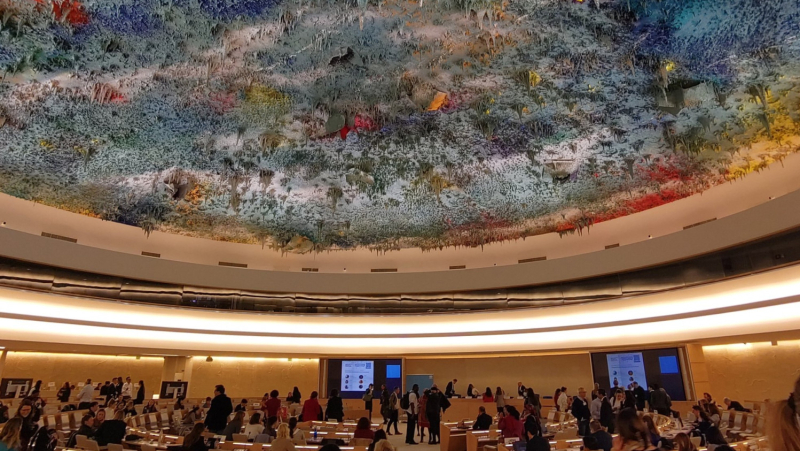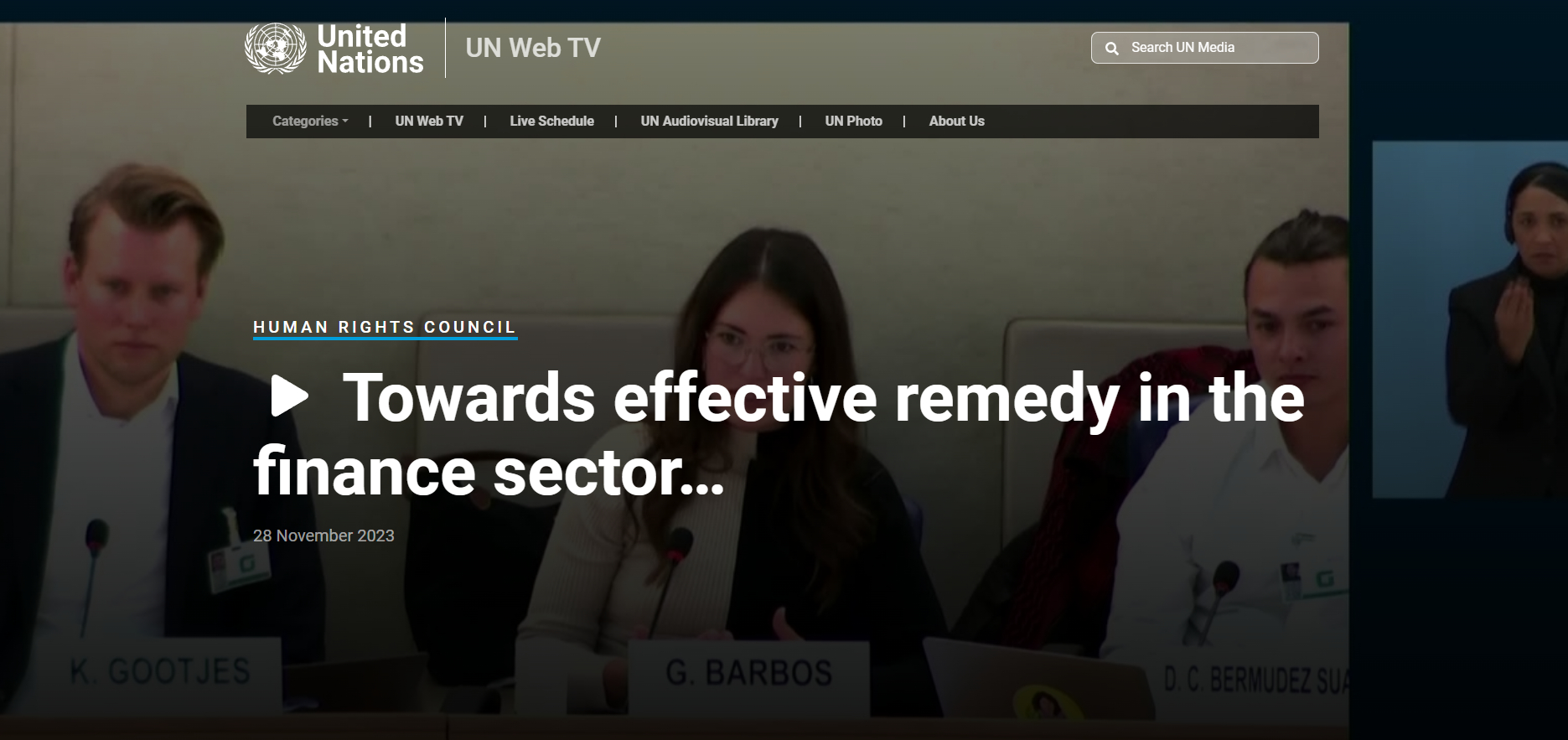“Remedy should be the norm, not the exception”, says BankTrack at the UN Forum on Business and Human Rights
Giulia Barbos, Human Rights Campaigner and Policy Researcher, BankTrack: giulia@banktrack.org

Giulia Barbos, Human Rights Campaigner and Policy Researcher, BankTrack: giulia@banktrack.org
Banks need to do much more to commit to remedy and ensure they make accountability mechanisms available for the people affected by their finance, argued BankTrack’s Giula Barbos at the 12th UN Forum on Business and Human Rights in Geneva this week. This includes showing in their reporting and engagements with civil society how they are providing and supporting remedy for impacts they identified, as well as developing or participating in accountability mechanisms, at the level of the bank and of their industry initiatives.
The remarks were made at a session co-organised by BankTrack, titled “Towards Effective Remedy in the Finance Sector.” This session was co-organised with the UN’s Working Group on Business and Human Rights, Accountability Counsel, BankTrack, Equitable Cambodia, Inclusive Development International, BSR, Principles for Responsible Investment, Investor Alliance for Human Rights and the Project on Organization, Development, Education and Research, PODER.
BankTrack’s human rights campaigner, Giulia Barbos, presented as part of a multi-stakeholder panel, moderated by PODER’s Ivette Gonzalez, which also included: Camilo Bermúdez, Litigation Director with the Council of Popular and Indigenous Organizations of Honduras (COPINH); Kees Gootjes, Business & Human Rights Advisor with ABN AMRO Bank; Davide Cerrato, Senior Policy Specialist at the Principles for Responsible Investment; and Pichamon Yeophantong, Member of the UN Working Group on Business and Human Rights.
The session aimed to consider the progress made in the financial sector since the adoption of the Guiding Principles in 2011, as well as the progress that remains to be made, in terms of access to remedy for affected rights-holders, the challenges for affected rights-holders to achieve full reparation and justice when a financial institution is involved or has contributed to harm.
BankTrack’s remarks to the forum focused on the results of the 2022 Global Human Rights Benchmark and what they reveal about the state of remedy in the finance sector; Australian bank ANZ’s landmark settlement with Cambodian farmers in 2020; progress towards wider adoption of grievance mechanisms in the sector; and the need for industry initiatives such as the Equator Principles to establish their own accountability mechanism in accordance with the UN Guiding Principles – highlighted by BankTrack’s own complaints website for the Equator Principles, equator-complaints.org, launched in June this year.
On the Cambodian settlement, Giulia Barbos commented: “this example shows that banks can and should contribute to effective remedy, that it is possible to imagine a world where this is the norm rather than the exception.”
Full details of the session and a video stream are available here.

